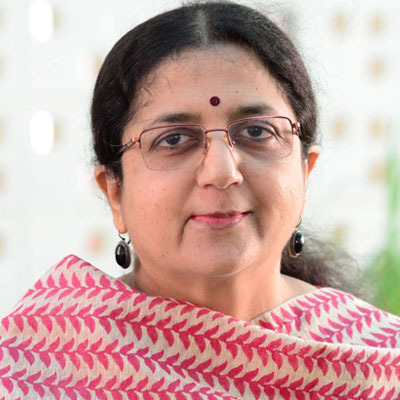When I left my daughter at her play school on Day 1, I tried hard not to look back and to ignore the sound of softly sobbing children. When I went back to pick her up, I was horrified to hear she had already had a fight with her teacher! The teacher had promised candy to all the students who could recite the alphabet and count to 100 without making a mistake. I was told that my toddler had ticked the teacher off saying that only a ‘meanie’ would deny everyone in the classroom candy. Of course, she didn’t get any candy that day, but as a parent I must confess to harbouring a small measure of pride in her perception of what was surely a matter of candy injustice! Fortunately, schools have come a long way since then and teachers rarely use sweet treats to reward or motivate students.
More than any other incident in the recent past, the ongoing pandemic has made our students confront social reality and economic inequalities. Many of them have told me that they were shocked by the pictures of desperate men, women and children walking hundreds of kilometers to get back to their villages; that they had been ignorant of the sheer scale of the migrant labour that fueled the economy of a city like Delhi. Stories of locked factories and enforced lay-offs, stories of starvation and hunger, stories of lost homes and lost hopes. As a reflective student confessed: I felt small about the things I was complaining about – cancelled holidays, forgoing trips to the mall, homework after a long day of online lessons.
Exploring the aftermath of events like the lockdown requires students to apply critical thinking skills in authentic scenarios and make connections to real-world challenges. Introducing them to the United Nations’ Sustainable Development Goals, helping them to distinguish between fact and opinion, and develop a perspective on global issues based on logic, reason and a compassionate humanity – this is surely our mandate as teachers.

As we look forward to post-COVID normalcy, we need to re-examine how we can, as teachers, help students identify instances of injustice, both in society and in their own experiences, as well as help them clarify their own thoughts, behaviours and responses to remedy them. Can we teach for social justice? Can we teach our students to be active, engaged and forward-looking agents of social change without propagating a personal or political agenda?
Most of us pride ourselves on encouraging healthy debates and on providing ample classroom opportunities for questions, arguments even, all focused on furthering knowledge and understanding in the classroom. We view questions on topics we teach as central to learning as they foster critical and independent thought. We talk of subject-specific skills. But do we really use our classroom to initiate discussions on social justice? Racism? Inequality? Poverty? Justice? Do we see these issues as integral or extraneous to lesson objectives?
A good teacher must consider it both a responsibility and an honour to challenge and be challenged by students in class – to be both an initiator of and a witness to serious social discourse. For in many a classroom, students could present a picture of detachment, or compliance, or of being in agreement with what they perceive as the dominant opinion or a teacher’s preferred viewpoint – merely because it is the most convenient of things to do.
We need to constantly remind ourselves that conflict, argument, dissent and debate are the very source of creativity. We need to imagine the work of poets and painters, scientists and musicians, mathematicians and philosophers, as a conflict with existing practices, values, thoughts and beliefs. We need to ensure that each student in the classroom contributes to an intellectual climate in which their opinions are heard, respected and valued.
Giving our students the right to question us and what we say or hold true allows them to develop self-confidence; relating subject matter to real world issues keeps them engaged in lessons.
We must ensure our students are not passive learners, nor empty vessels in the Gradgrindian sense but young learners who recognise that true engagement is not just academic success but active citizenship.

